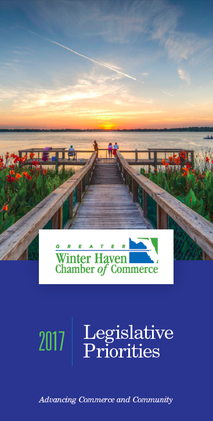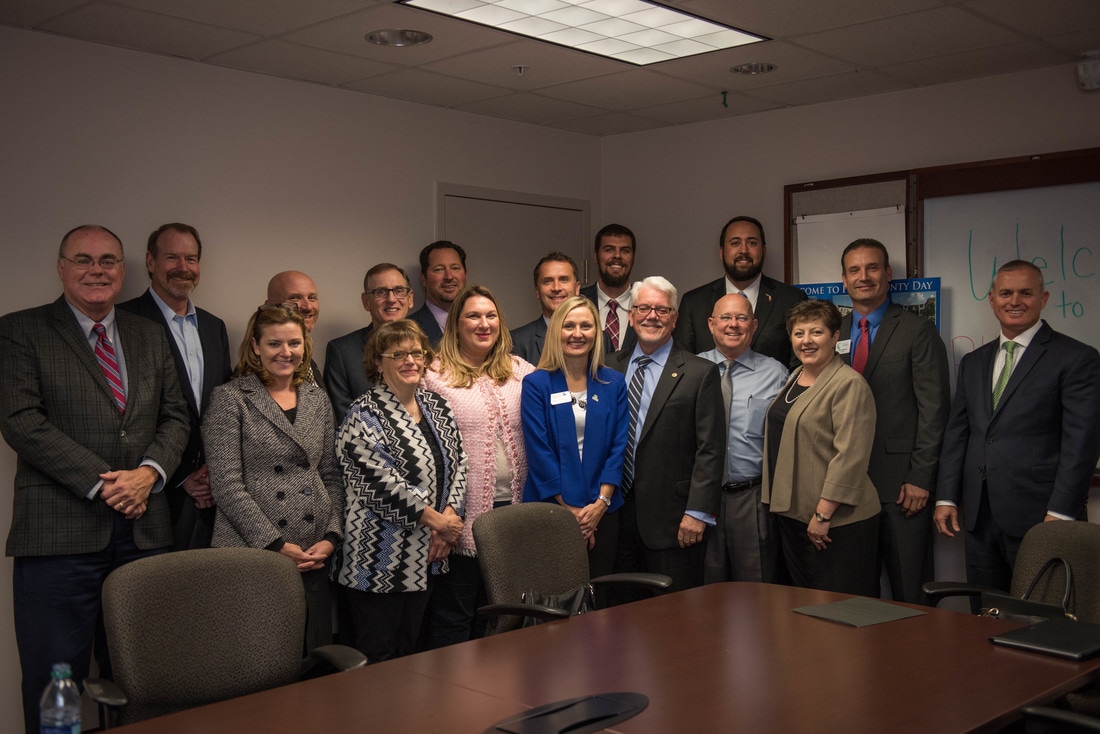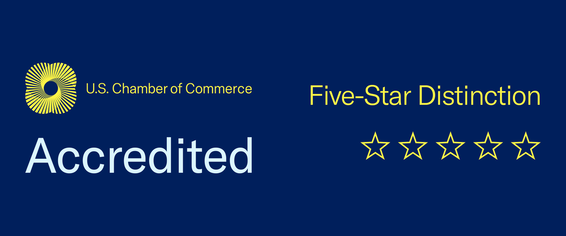There are numerous issues we watch each session, but much of the angst this year surrounded several core issues:
By the Numbers:
As of last Friday, Governor Scott had not yet been given the budget and so we are unsure what he plans to do with it, although there is speculation. Below are some updates on several of the items that were outlined in our legislative agenda. Business Rent Tax: In good news, there was finally progress made on eliminating the tax on commercial leases (also known as the Business Rent tax). This Florida only tax is placed on commercial leases and is currently at 6%, but because of a bill filed by our own Senator Stargel (and a house companion) the tax will be permanently lowered to 5.8%. It's a small gain, but one that will collectively save Florida businesses $61 million per year. The signing of this bill last week marks the first step in what we hope will be the eventual complete elimination of the business rent tax. The tax package also:
Enterprise Florida Enterprise Florida is the economic development agency of the state. They are responsible for many things, including marketing Florida as a place to grow or move your business. It is also responsible for providing incentives to attract business. During this session, driven by House Speaker Corcoran, the legislature weakened Enterprise Florida's ability to operate, a move many think will damage Florida's ability to remain competitive. The budget currently includes $0 towards Enterprise Florida incentives and cuts their operating budget from $23.5M to $16M. On a side note, our local economic development organization, Winter Haven Economic Development Council, is working with the City to provide hyper-local, project-based incentives to spur reinvestment in Winter Haven's CRA districts. Visit Florida Tourism is Florida's largest industry and the reason we do not have a state income tax. As a part of his self-titled "dismantling of corporate welfare" House Speaker Corcoran also targeted Visit Florida. In votes that puzzled many, Visit Florida's budget (in the current proposal) is slashed from $75M to $25M and heavier regulations were placed on how they can use the funds. While we understand the need for more oversight, such a drastic cut is detrimental, especially to destinations other than Orlando. Visit Florida runs numerous co-op marketing programs. They buy a large amount of advertising and then smaller destinations (like Polk County) get to buy a sliver of that large amount, making it affordable to reach a global and national market. Worker's Compensation Last December rates went up by over 14% after a Florida Supreme Court decision that reversed the efforts that had been made to lower Worker's Comp rates over the last decade. There was a strong push to address this issue during legislative session, however little was done and rates are expected to rise again this year. K - 12 Education The Polk County School District was asking for a study to revisit the allocation formulas for school districts, since Polk County School District is the 8th largest in the state but receives the 64th lowest funding per student in the state (64 our of 67). According to The Ledger, "For the 2017-18 school year, Polk expects to receive $6,919 per student — $8 less than this school year and $174 less than 10 years ago. That’s a $5.6 million shortfall to the district’s $1 billion budget — or 80 instructional positions plus operating expenses, according to the district." Education was probably one of the more volatile issues towards the end of the session as HB 7069, the Education Conforming bill, was passed with what some feel was a lack of transparency for the depth of policy changes included (although House members would contest that the contents of the conforming bill were heard in committees throughout the session). The bill proposes an increase of only 0.34% in per student funding, which most school districts feel barely meets the basic needs to educate. Another issue arising from the bill is how federal Title 1 dollars are allocated. The bill would change the funnel of funding to restrict the Title 1 dollars to specifically follow the student. While that is certainly understandable (the Title 1 dollars should follow the student in need) the lack of flexibility of that model raises concerns for the district. As one School Board member explained, being able to pool those dollars allows for more programming to occur to affect more students. For example, if two schools in close proximity to each other could hold an after school tutoring program at a central location it benefits both of those schools by providing access. With the restriction it wouldn't allow for those Title 1 dollars to be pulled together to provide a better program for numerous people. According to the district, this change "could cost the school district 136 “coaches” for reading, math and science in those schools." Read more in The Ledger's coverage. HB 7069 also includes $140M in funding to "Schools of Hope." This allotment would allow pre-approved non-profit Charter schools with a proven track record of student success in lower income communities around the country to set up within a 5-mile radius of a failing (D or F graded) public school. This move is controversial as some feel it takes funding away from traditional public schools while others believe that it expands access to education and choice for parents who may be location constrained. The $140M in funding is positioned to also be available to public school districts to apply for assistance for D & F schools (up to $2,000 additional per student), however from speaking with a School Board member there are concerns about access to that funding. According to the district, there are 115 schools in the state that would qualify, of which 13 are in Polk County. Only 25 schools across the state will receive the grants. The grant criteria is concerning to the district as it requires that the district provide as many 'wrap-around' services as possible which would be difficult for a district that already has low per-student funding ratios. From what I've learned at this point, if it passes into law, perhaps this is where a public-private partnership in the Community Schools model could help the district get access to the funds. Time will tell. Why should we as a business community care? First, access to a qualified and educated workforce is one of the main concerns I hear from our members. The more we invest in our children's education the better we will all be as a community. Second, the strength of our public school education is one of the deciding factors in a business deciding to relocate or grow in our community. Business owners know that their current and future employees factor in the quality of the education available into their decision where to live and, in turn, work. Higher Education We supported several capital funding requests from Polk State College and Florida Polytechnic University. In the current budget, Polk State College has been allocated $2.5 million for reimbursement of a purchase of new Chiller system on the Winter Haven campus. Florida Poly has been allocated $2 million for the Applied Research Center. We are keeping a close eye on what Gov. Scott does with the budget as there is concern regarding funding of remedial education programs at the state college level. Call it the chicken or the egg scenario, but as many students enter college they are unprepared to learn and now the colleges are able to offer the support they need to bring them up to speed. That funding is threatened in the proposed budget. More to come on this as the Governor takes action on the budget. City of Winter Haven We supported the City of Winter Haven on several initiatives. As you have heard, the state negotiated with the City on the long-term lease of Nora Mayo Hall ($300 a year for 50 years). The building is currently under minimal renovation (paint, cleaning, landscaping etc) as the City Commission approved $60K this budget cycle. The full renovation of the facility will cost an estimated $1M+. The City staff hopes to have the building available for public rental by October 2017. The Chamber supported passage of the Heartland Headwaters and Sustainability Act to protect the water resources in Polk County and the Heartland region. While this didn't provide funding this year, it provides a foundation for future sustainability projects. One item that has been causing a stir locally (and around the state) is a bill that would place a question on the ballot in November 2018 asking taxpayers if they would like to increase the allowance for homestead exemption. The bill outlines an additional $25,000 homestead property-tax exemption for home values greater than $100,000. For homes worth at least $125,000, the total homestead exemption would be $75,000, up from $50,000. The County and City government are concerned as this will decrease the level of funding and could result in increased ad valorem rates in order to keep the same level of service. The County and county-run transit is affected by $10M+ and the impact on the City of Winter Haven is over $500K. This bill was introduced by two Polk County area legislators (Rep. Mike LaRosa and Sen. Tom Lee). Representative LaRosa explained at our legislative wrap-up breakfast that he believes because home values have increased that the taxpayers should receive relief. However you also must factor in that in an area like Winter Haven, taxes have not been raised in over a decade to help provide relief to residents. Representative Sam Killebrew voted against the measure citing that it is a "home rule" issue that should be addressed by individual counties/cities. Read more about this debate in The Ledger. There were many things that needed to be addressed this session that they simply didn't get to (Medical Marijuana regulations being one of the more prominent) so we will have to see what happens. Will there be a special session to address those regulations? Will the Governor veto the entire budget or just portions of it? More to come.
0 Comments
Your comment will be posted after it is approved.
Leave a Reply. |
Upcoming Events |
|




